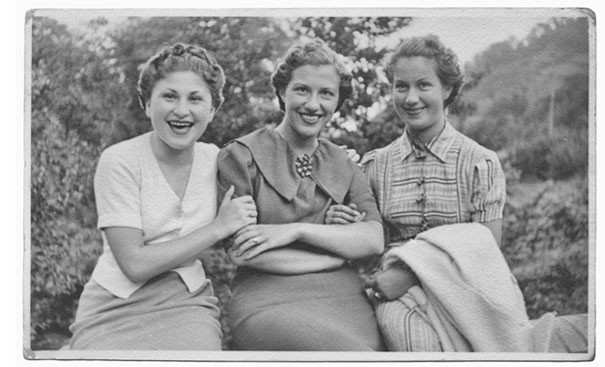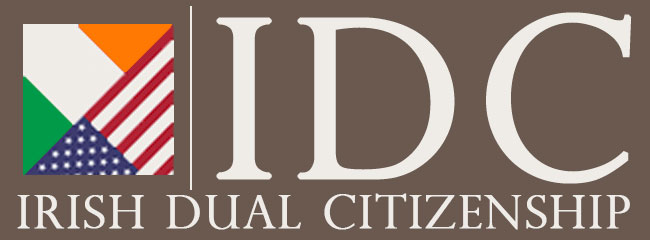HOW TO GET IRISH CITIZENSHIP
How to become an Irish citizen: Your 3 PATHs FOR Irish CITIZENSHIP WITH PROS & CONS
Have you dreamed of moving to Ireland and wondered “Can I get dual citizenship”? Or connecting on a deeper level with your Irish ancestry? Perhaps you already have a life established there and are ready to make it more permanent.
When learning how to become a citizen of Ireland, the first step is confirming if you qualify for Irish citizenship. There are two primary ways how to get Irish citizenship: by descent and by naturalization (marriage, in essence, falls under the naturalization category). Here at Irish Dual Citizenship, our IDC team is excited to help you on your citizenship journey and can greatly simplify the process of getting Irish citizenship for you.
Below are a complete breakdown of the 3 primary ways how to get an Irish citizenship. Read on to determine which category you fit into and if you meet the Irish citizenship requirements for that category.

How to Become an Irish Citizen
When learning how to become an Irish citizen, there are 3 primary paths for getting Irish citizenship: through ancestry (by descent), via marriage, and by naturalization. This discussion dives into each avenue, highlighting the advantages and drawbacks of each approach to getting Irish citizenship. Generally, Irish citizenship process by descent or marriage is expedited, whereas pursuing naturalization can take 5-9 years.
We will explore the nuances of the Irish citizenship process and how to get an Ireland citizenship. Focusing on these 3 primary methods and evaluating the benefits and challenges to determine how to become an Irish citizen and which path is best for you.
The first step when learning how to get Irish citizenship by descent is to confirm if you qualify. In order to qualify for Irish citizenship by descent, you must have had a parent or grandparent who was an Irish citizen. Both paternal and maternal lines are accepted. In some cases, one can get citizenship through a great-grandparent, but only if the applicant’s parent had already claimed citizenship through this person before the applicant’s birth. Applications that extend further back than great-grandparents are generally refused.
You might also be eligible if you were born in Ireland yourself. If your birth date falls before January 1, 2005, you are an Irish citizenship by right of being born in the country. If you were born in Ireland after that date, you must be eligible for citizenship by descent as described above.
Finally, if you are a resident of Ireland and related to an Irish citizen, you might qualify for citizenship by “association.” These cases are left up to the discretion of the Irish Minister for Justice.
Among the official documents you will need for your application are vital records for the Irish line. The application for getting Irish citizenship must be both submitted online through the Foreign Births Registry, as well as a signed/witnessed physical application sent to the relevant office.
Pros: If you want to claim Irish citizenship through descent, it is a one-time process that once established will continue to automatically pass down from generation to generation so your family will not need to apply again. It is also typically the fastest way of getting Irish citizenship.
Cons: It can take between 9 months to 3 years on average and can be somewhat expensive and time consuming.
PATH 2: Citizenship by Naturalization
When learning how to become a citizen of Ireland by residency (or naturalization), you must be able to demonstrate “reckonable residence” for at least 5 of the past 9 years. This includes a year of continuous residence in Ireland in the year leading up to your application (with an exception of 70 days granted). The qualifications for what counts as “reckonable residence” can be complicated, so be sure to check the stamp(s) you are/have been on. You must also be able to demonstrate “good character.” People married to Irish citizens have a shorter residency requirement (more below), along with people granted refugee status. You must also intend to remain in Ireland.
Becoming an Irish citizen through naturalization requires specific documentation. The necessary documentation includes proof of identity, and proof of residence for each year counting for your application. This is required prior to getting an Irish passport.
Pros: All you need is flexibility, time and an understanding of Irish laws to gain naturalization status.
Cons: It is very lengthy process taking about 5-9 years, of legally working and living in Ireland under a visa to gain citizenship. The Ireland government can also deny your application if they deem you a security risk of any kind or you do not meet their strict requirements.
If you’re married to an Irish citizen and live in Ireland with your spouse, you might qualify for becoming an Irish citizen too! You must have been married to your spouse for at least 3 years and have “reckonable residence” in Ireland for at least 3 out of the past 5 years. In addition, applicants must also be able to demonstrate “good character.”
The documents include your marriage certificate, your and your spouse’s birth certificates, and proof of residency for each year of “reckonable residence.” Applications are submitted to the Irish National Immigration Service. Once approved you can focus on getting your Irish passport.
Pros: One of the faster paths to Irish citizenship. Time and an application are all you need to secure your Irish citizenship once you are married to an Irish citizen.
Cons: This path is only an option if you can meet and fall in love with a natural Irish citizen and be legally married.
Application Process: How to Get Citizenship in Ireland
There are different required documents depending on which citizenship pathway you choose for getting Irish citizenship. Once you have determined you are eligible for citizenship, do research on which specific documents you will need for your case. Documents could even differ depending on the specific case and office you apply to.
When learning how to get citizenship in Ireland, the location where you apply will also depend on your pathway to citizenship. Applications for citizenship by naturalization and marriage are completed online (or by mail) to the Irish National Immigration Service. If you are applying for citizenship by descent, you must first register with the Foreign Births Register and then mail a signed application to the relevant office. In most countries, this will be your local Irish embassy or consulate, but if you live in the U.S./UK/Canada/Australia, your application will need to be sent to the Dublin office. If you have questions about the application process of how to get a dual citizenship in Ireland, feel free to contact our team.
Can You Have Dual Citizenship?
Ireland allows you to have dual citizenship, so obtaining Irish citizenship should not affect your other citizenship in anyway way. However, always check the requirements of your country to see if dual citizenship is allowed.
Enjoy Your Irish Citizenship!
No matter how you go about getting Irish citizenship, it comes with lots of benefits. But, like any official legal process, there is a lot of bureaucracy to navigate and getting to the finish line takes time and patience. The steps you need to take can be different, depending on your situation.
If you keep at it, you could become an Irish citizen and enjoy all the benefits that come with it including learning how to get an Irish passport.
Have more questions about how to get an Ireland citizenship? Feel free to talk to our team that helps with Irish citizenship to review our Irish citizenship services. We’re here to help you every step of the way.
Frequently Asked Questions
What does Irish citizenship mean?
As an Irish dual citizen, you will have the ability to live, work, and study in Ireland, the UK, and the broader EU. You can also benefit from all the services available to Irish citizens, including their excellent health care and education. Click here for a full list of the benefits of becoming an Irish citizen.
Does Ireland allow dual citizenship?
Yes. Irish law allows dual citizenship and does not require you to renounce your current citizenship(s) when claiming dual citizenship.
Is Ireland easy to get citizenship?
Ireland is known to be a fairly lenient country in terms of dual citizenship with minimal eligibility requirements for citizenship by descent. If you can prove your ancestry by having a parent or grandparent that was born in Ireland, you may qualify for citizenship by descent.
Is Ireland hard to get citizenship?
There are limited restrictions to Irish citizenship by descent and broad eligibility requirements regarding how to get dual citizenship in Ireland. You may qualify if you have at least one parent or grandparent that was born in Ireland or was an Irish citizen at the time of your birth.
Can an American become an Irish citizen?
Yes, if you qualify, you can become an Irish citizen without affecting your American citizenship. All you have to do is be able to qualify through one of the pathways described above. The two most common methods to get Irish citizenship are by descent or through marriage.
How can an American citizen become a citizen of Ireland?
American citizens can apply for Irish citizenship if they have a parent or grandparent that was born in Ireland or a parent that was an Irish citizen at the time of their birth. Americans may also qualify for Irish citizenship by naturalization if they have an Irish spouse or reside in Ireland. There are three primary ways how to get Ireland citizenship, through descent, marriage, or naturalization.
How do I get Irish dual citizenship?
There are 3 paths for getting Irish citizenship: through ancestry (by descent), via marriage, and by naturalization. Each path has its own pros and cons. Some paths take longer and are more expensive while other paths have specific legal requirements.
What qualifies me for Irish citizenship?
There are different ways to become an Irish citizen. If you are the child of an Irish parent or one of your grandparents was born in Ireland, you may claim Irish citizenship. Being a spouse of an Irish citizen or having established residence in Ireland may also allow you to apply.
How do you qualify for Irish citizenship?
There are various ways to qualify for Irish citizenship, one being by descent. You may qualify for citizenship if one of your parents or grandparents was born in Ireland. Alternatively, you may qualify for citizenship by marriage or naturalization by residency.
How do I become a citizen of Ireland?
Getting dual citizenship in Ireland involves acquiring Irish citizenship while retaining your citizenship from another country. Here are the main pathways to obtaining Irish citizenship, which would allow for dual citizenship depending on the laws of your current country:
-
By Birth:
- Born on the island of Ireland before January 1, 2005, automatically grants you Irish citizenship.
- Born on the island of Ireland on or after January 1, 2005, you may be entitled to Irish citizenship if your parents are Irish, entitled to be Irish, or qualify through legal residency for a certain period before your birth.
-
By Descent (Ancestry):
- If one of your parents was an Irish citizen at the time of your birth, but you were born outside of Ireland, you may claim citizenship.
- If one of your grandparents was born in Ireland, but neither of your parents was born in Ireland, you can apply for citizenship through the Foreign Births Register before you can claim citizenship.
-
By Marriage or Civil Partnership:
- If you are married to, or in a recognized civil partnership with, an Irish citizen, you may apply for citizenship through naturalization. Conditions include being married for at least three years and living on the island of Ireland for a period of time with lawful residence.
-
Through Naturalization:
- Residency: Generally, you must have been legally resident in Ireland for at least 5 years (1825 or 1826 days) out of the last 9 years, including at least 1 year (365 or 366 days) of continuous residence immediately before your application.
- You must intend to continue living in Ireland.
- You must be of good character and, in some cases, intend to swear an oath of fidelity to the nation.
How long does it take to get dual citizenship in Ireland?
Once you’ve submitted your application, the processing time varies based on the citizenship route you’ve chosen. If you’re applying through descent, the process might extend beyond a year. On the other hand, naturalization applications could take as long as 19 months to process. Several elements influence these timelines, notably the accuracy of your application and the current workload of the processing office.
How long does it take to get Irish dual citizenship?
After an application has been filed, the wait time depends on which pathway for citizenship you went through. Applications made by descent can take a year or more, while applications for naturalization can take up to 19 months. Many factors affect processing times, primarily if your application has errors and if the office has many applications to handle.
How long does it take to get Irish citizenship?
The time it takes to obtain Irish citizenship can vary depending on the method through which you’re applying. For those seeking citizenship through descent (through parents, grandparents, or great grandparents), the process typically takes about 9 months – 3 years from the time of application, provided all documentation is in order. However, it’s important to note that this timeframe can be longer if additional documentation is required or if there’s a high volume of applications.
Applying through naturalization takes the longest and requires you to legally reside in Ireland for 5-9 years.
Can US citizens have dual citizenship with Ireland?
Yes, the US allows you to have dual citizenship. Even though the US doesn’t officially recognize having citizenship in two countries, there’s no rule against it either. This means you can apply for Irish dual citizenship and keep your US citizenship without giving up any rights.
Can a US citizen get Irish citizenship?
A US citizen may qualify for Irish citizenship by descent if they have a parent or grandparent that was born in Ireland or was an Irish citizen at the time of their birth. They may also qualify by being the spouse of an Irish citizen or having established residence in Ireland.
Can I get Irish citizenship through my child?
If you are the parent of an Irish citizen under the age of 18, you may be eligible for permission to remain in Ireland on this basis, however this does not automatically entitle you to citizenship. Upon meeting a number of requirements, you may be eligible for citizenship by naturalization based on residence after a certain number of years.
This page was last updated with help by Marco Permunian
Additional Resources:
Do You Qualify?
Want to know if you qualify for Irish citizenship? Contact us, we offer a free consultation to help determine your eligibility.


